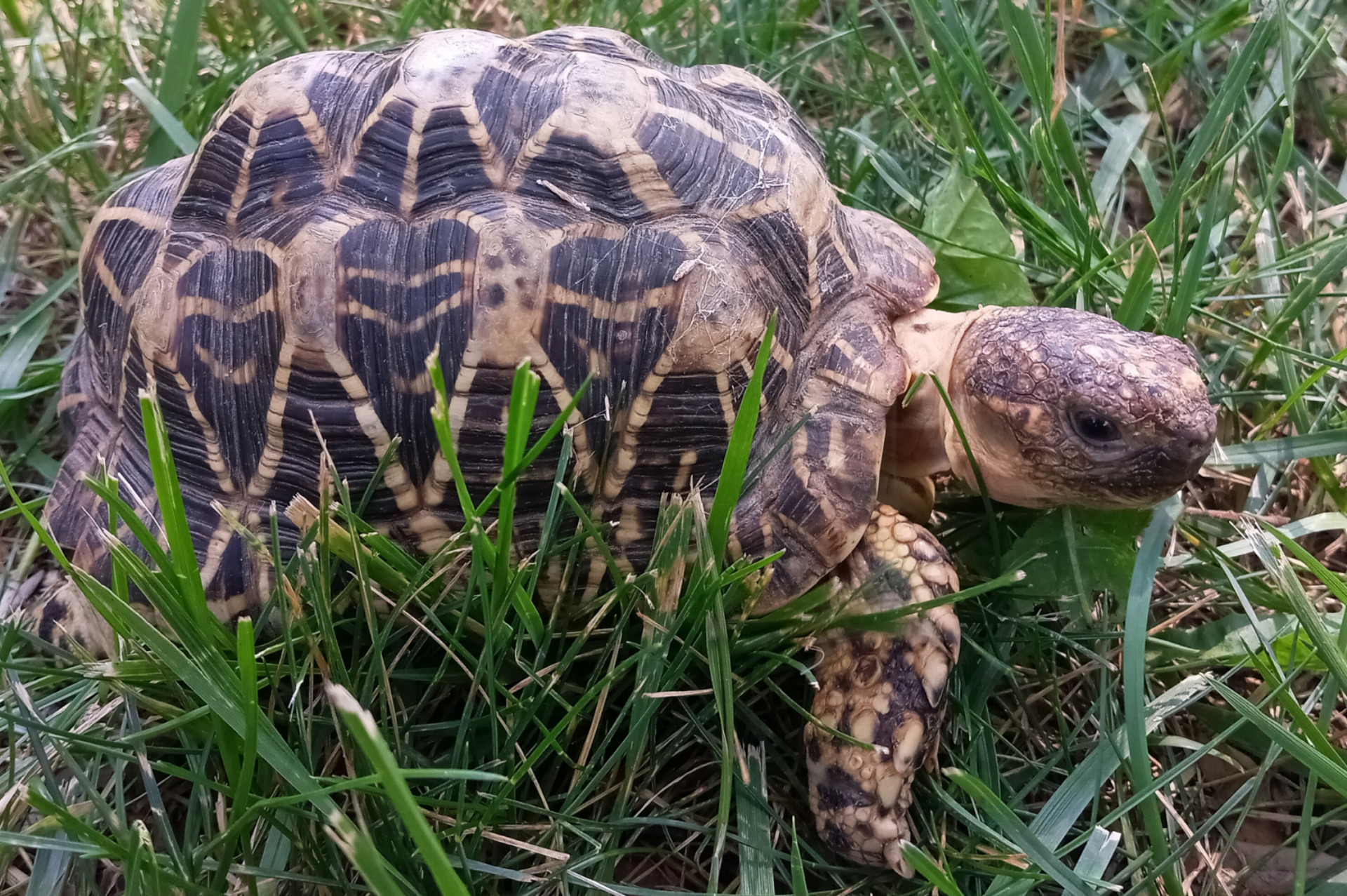Indian Star Tortoise

Basic Information:
Scientific Name: Geochelone elegans
Habitat: Indian star tortoises are found in the semi arid scrub forests and thorny grasslands of central and Southern India, Western Pakistan, and Sri Lanka.
Diet: Star tortoises are herbivores. They graze extensively upon mixed grasses, but also favor the fruit and pads of the prickly pear succulents and thistles.
Size: 0.5 to 1 foot long
Weight: 1 to 2.5 pounds
Lifespan: 30 to 50 years in the wild. Up to 80 years in human care.
Distribution Map:
I.U.C.N. Conservation Status:

What does this mean?
Vulnerable – a species determined by the International Union for Conservation of Nature (I.U.C.N.) to possess a high risk of extinction as a result of rapid population declines of 30 to more than 50 percent over the previous 10 years (or three generations), a current population size of fewer than 1,000 individuals, or other factors.
Our Indian Star Tortoise:
Ringo (Male) – Estimated Date of Birth Between 1996 & 2000
About Indian Star Tortoises:
Distinguishable by the star pattern on their shells, these small tortoises can be found in the arid deserts of India, Pakistan, and Sri Lanka. They thrive in extreme temperatures and require the proper heat, lighting, and humidity that they are accustomed to in order to survive. They are generally considered to be very shy and non-territorial. However, they do not like being handled and much prefer to be left to their own devices.
Did You Know?!
Variations of a star pattern are quite common among African and to some extent Asian tortoises, and are – despite the eye-catching appearance in unnatural surroundings – a very efficient means of camouflage.
Indian star tortoises have been used for human food ever since the two species came into contact thousands of years ago. Local subsistence use might not have seriously impacted tortoise populations, but systematic mass collection for the commercial food and pet market is unsustainable, reducing or even extirpating tortoise populations.
During dry, hot weather Indian star tortoises are mostly active during the early morning and late afternoon. The rest of the day, these tortoises shelter under vegetation or other cover. During the rainy season, their activity level increases tremendously and they can be observed moving around and feeding during much of the day.
